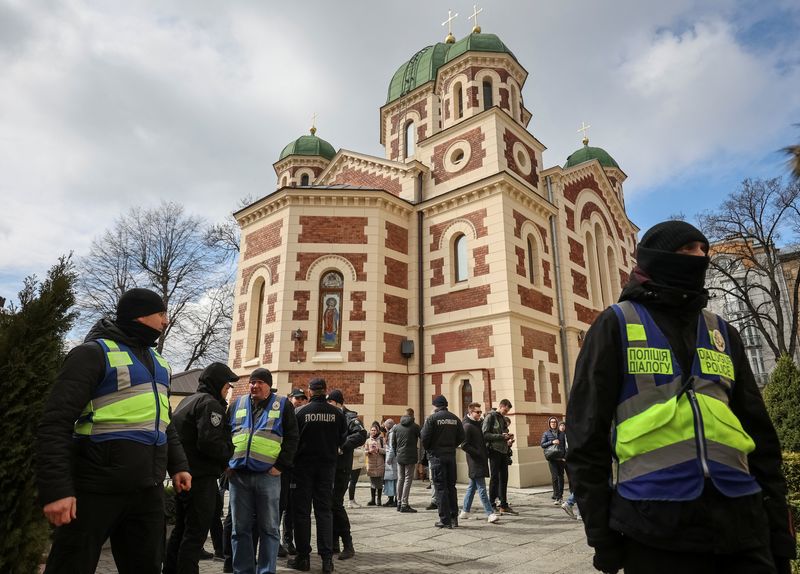Ukraine adopts ‘historic’ law to ban Russia-linked minority church
2024.08.20 10:30
By Yuliia Dysa and Olena Harmash
KYIV (Reuters) -Ukrainian lawmakers on Tuesday passed a law envisaging a ban on the activities of a Russia-linked branch of the Orthodox church, paving the way for a historic rupture with an institution that Kyiv has accused of complicity in Moscow’s invasion of Ukraine.
A majority of Ukrainians are Orthodox Christians but the faith is split into one branch traditionally tied to the Russian Orthodox Church (ROC) and an independent church, the Ukrainian Orthodox Church, recognised by the world Orthodox hierarchy since 2019.
Ukrainian leaders have accused the Moscow-linked UOC of abetting Russia’s 30-month-old war on Ukraine by spreading pro-Russian propaganda and housing spies.
The bill passed by 265 lawmakers bans the Russian Orthodox Church on Ukrainian territory and said that a government commission will assemble a list of “affiliated” organisations whose activities are not allowed. The list is expected to target the UOC specifically.
President Volodymyr Zelenskiy hailed the vote as a step to strengthen Ukraine’s “spiritual independence”.
Lawmaker Iryna Herashchenko said it was the issue of national security.
“This is a historic vote. Parliament approved a legislation which bans a branch of the aggressor country in Ukraine,” she wrote on Telegram.
The UOC was historically a part of the Russian Orthodox Church but it started to distance itself from Moscow after the February 2022 invasion.
Ukrainian officials dispute that claim and have launched dozens of criminal proceedings, including treason charges, against dozens of their clerics. At least one has been sent to Russia as part of a prisoner swap.
UOC’s metropolitan Klymentiy reiterated that the church had no links with “foreign centers” and criticized the bill as targeting the church’s property and discrediting those wanting to implement it.
“The Ukrainian Orthodox Church will continue to live as a true church, recognized by the vast majority of practicing Ukrainian believers and churches of the world,” he told Hromadske TV.
Opinion polls showed that about 82% of Ukrainian did not trust the UOC and only about 8% of the population trusted it.
Lawmakers said the process of banning the UOC would be long and complicated as each Orthodox parish was an individual entity and they would have nine months to decide whether they want to leave it.

After this period, cases could be brought to court to ban it.
“Today we have embarked on the inevitable path of cleansing from within the Kremlin’s agent network, which has been hiding behind the mask of a religious organisation for decades,” lawmaker Roman Lozynskyi said on Facebook (NASDAQ:).








